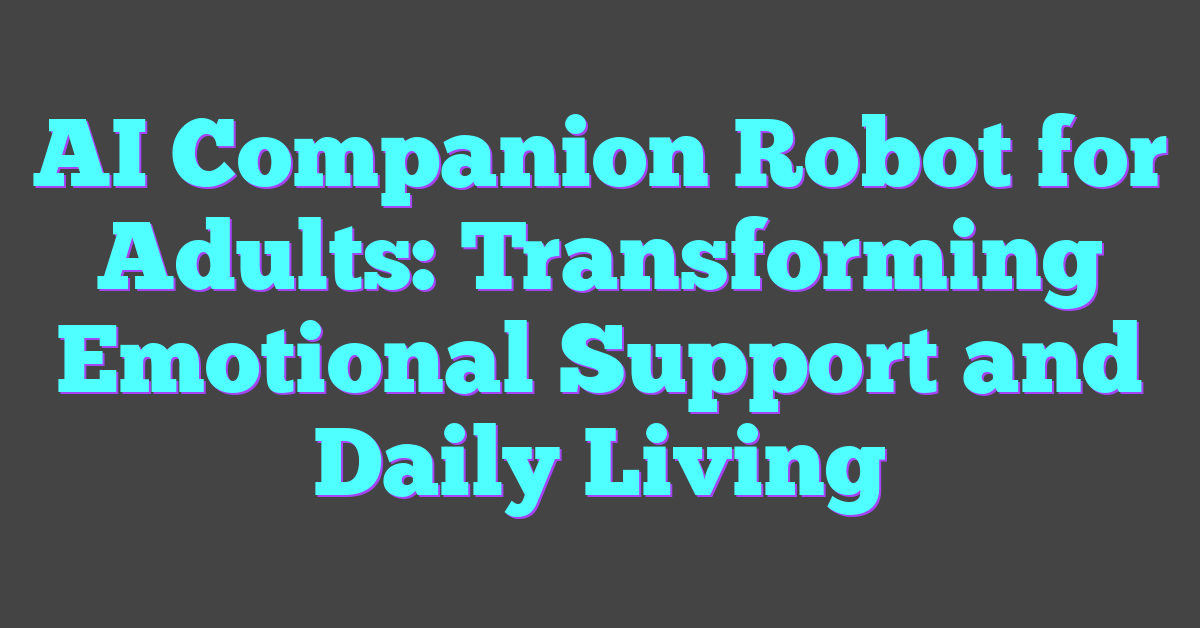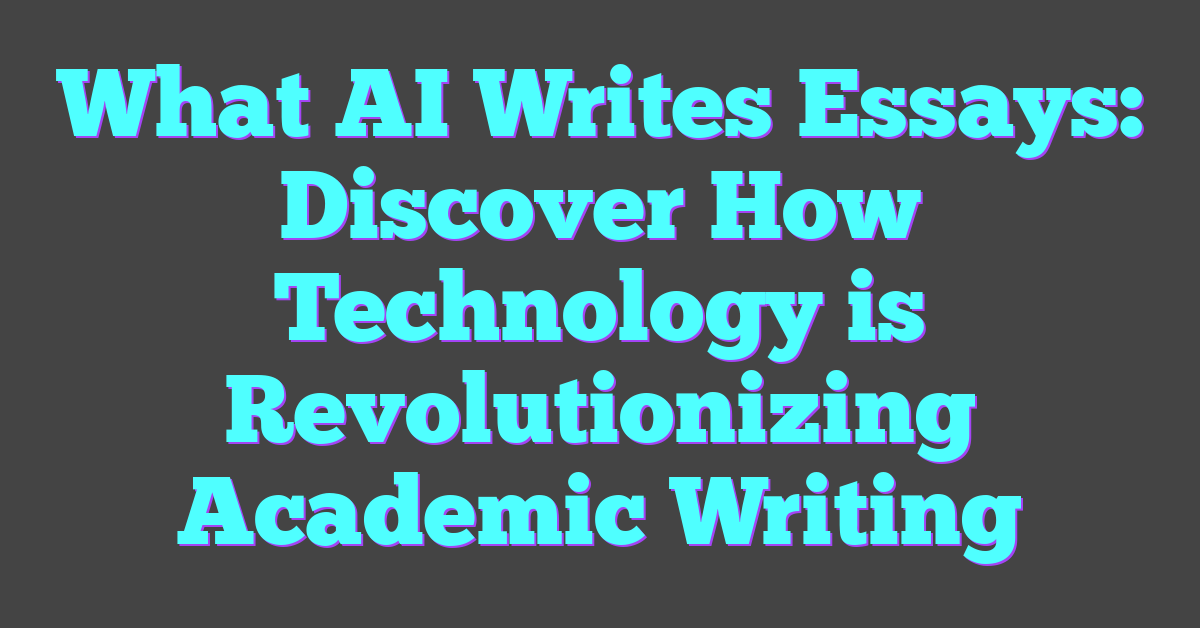Imagine having a personal assistant who never sleeps, always learns, and constantly adapts to your needs. That’s what AI can do for you. From managing your calendar to making personalized recommendations, AI has the potential to revolutionize your daily life.
Whether you’re a busy professional, a student juggling multiple responsibilities, or someone just looking to simplify everyday tasks, AI can be your go-to helper. With its ability to analyze data and predict patterns, AI can save you time and effort, making your life smoother and more efficient.
Understanding AI: What It Can Do for You
Artificial Intelligence (AI) has become an integral part of everyday life, enhancing productivity and providing efficient solutions. AI continuously learns, adapts, and delivers personalized services.

Everyday Applications of AI
AI integrates seamlessly into daily routines, optimizing how individuals manage time and tasks. Voice assistants, such as Amazon’s Alexa and Google Assistant, simplify household chores and information retrieval through voice commands. They set reminders, control smart devices, and answer questions instantly.
Recommendation engines on platforms like Netflix and Spotify personalize entertainment options by analyzing user preferences and behaviors. These systems provide tailored content, improving user experience by suggesting movies, shows, and music that align with individual tastes.
Health and fitness apps like MyFitnessPal and Fitbit utilize AI to offer customized workout plans, track physical activity, and monitor dietary habits. These applications help users achieve fitness goals efficiently by providing data-driven insights and recommendations.
AI in the Workplace
In professional environments, AI streamlines operations and enhances productivity. Tools such as Slackbot and Trello use machine learning to automate workflow management, prioritize tasks, and facilitate team communication, resulting in more efficient project management.
Customer service AI, like chatbots on websites, provides instant support and resolves queries 24/7. They handle repetitive inquiries, allowing human agents to focus on complex issues. These chatbots use natural language processing to understand and respond to customer needs effectively.
AI-driven analytics platforms like Tableau and Power BI transform raw data into actionable insights. They analyze large datasets, identify trends, and generate visual reports, helping businesses make informed decisions and optimize strategies.
By integrating AI into daily activities and work processes, individuals and organizations can achieve greater efficiency, productivity, and satisfaction.
Personalizing Your Experience with AI
AI has the potential to transform your daily routines by offering tailored solutions to optimize your time and enhance your life. Here are two key areas where AI can make a significant impact:
AI in Smart Home Technology
Smart home technology uses AI to automate and personalize your living space. These systems utilize machine learning to adapt to your habits and preferences. For instance:
- Smart Thermostats: Devices like Google Nest learn your heating and cooling preferences, adjusting temperatures automatically to save energy.
- Voice Assistants: AI-powered assistants (such as Amazon Alexa) control everything from lighting to security systems through voice commands.
- Automated Lighting Systems: Lights equipped with AI adjust brightness based on the time of day or occupancy, improving comfort and saving energy.
- Security Cameras: AI-driven security cameras (like those from Ring) recognize familiar faces and notify you of unusual activity.
AI in Personal Health and Fitness
AI assists in developing personalized health and fitness plans, ensuring you meet your goals. AI applications in this domain include:
- Fitness Trackers: Devices like Fitbit analyze your physical activity and offer customized exercise routines.
- Health Apps: Applications such as MyFitnessPal track your dietary intake and suggest nutritional adjustments to meet your health objectives.
- Virtual Nutritionists: AI tools like Nutrino provide personalized diet plans based on your health data and preferences.
- Mental Health Support: Platforms like Woebot offer AI-driven conversations to help you manage stress and anxiety.
AI’s ability to learn from your habits ensures that these technologies not only enhance convenience but also provide proactive, personalized solutions.
Professional Growth Through AI Tools
AI tools offer significant avenues for professional growth. By integrating AI into daily work routines, professionals can enhance their skills and productivity.
AI-Assisted Learning
AI-driven educational platforms provide personalized learning experiences. They analyze users’ strengths and weaknesses, creating tailored learning paths. Examples like Coursera and Khan Academy use AI to recommend courses, ensuring users focus on areas needing improvement. Algorithms adapt content based on progress, helping learners achieve their goals efficiently and effectively.
Enhancing Productivity with AI
AI applications streamline workflow, automating repetitive tasks and allowing focus on complex activities. Tools like Grammarly enhance writing by suggesting grammar improvements and stylistic changes. Project management platforms like Asana and Trello utilize AI to prioritize tasks, predict deadlines, and allocate resources. These tools improve time management and efficiency, fostering professional growth.
Ethical Considerations and Challenges
AI offers numerous benefits in daily life and professional growth, yet it brings ethical considerations and challenges that must be addressed.
Privacy and Security Issues
AI systems often handle vast amounts of personal data, which raises significant privacy and security concerns. They analyze user habits and preferences to offer personalized experiences. To ensure user trust, companies must implement robust data protection protocols and transparency measures. For instance, AI-driven smart home devices should employ encryption to safeguard user data from breaches.
Consumers are becoming increasingly aware of privacy issues, especially with high-profile data breaches in recent years. Developers must prioritize user consent and provide clear options for data management. Regulatory frameworks like GDPR in Europe set standards that can guide AI system design to respect user privacy.
Impact on Employment
AI can significantly impact employment by automating repetitive tasks, thus increasing efficiency. While this leads to productivity boosts, it also raises concerns about job displacement. However, AI also creates new opportunities, particularly in tech-savvy roles like AI specialists and data scientists.
Reskilling and upskilling can mitigate the negative effects on employment. Educational institutions and companies can collaborate to offer AI-driven learning programs that enable workers to adapt to changing job requirements. For example, online platforms offering courses in machine learning and AI programming empower individuals to stay relevant in a transforming job market.
Conclusion
AI is transforming the way individuals manage their daily lives and work routines. From personal assistants to smart home devices and personalized health plans AI makes life more convenient and tailored to individual needs. It’s not just about automation; it’s about enhancing personal and professional growth. While there are challenges like privacy concerns and job displacement the benefits of AI in providing efficiency and personalized experiences are undeniable. Embracing AI means staying ahead in a tech-driven world and making daily life simpler and more productive.
Frequently Asked Questions
What are the benefits of using AI as a personal assistant?
AI personal assistants help manage tasks, provide personalized recommendations, and improve convenience by learning from user habits. They streamline daily activities and offer tailored solutions to individual needs.
How can AI assist with household chores?
AI helps with household chores through smart home devices like smart thermostats and voice assistants. These devices can automate tasks, manage home systems, and provide alerts for various household needs.
What are some examples of AI applications in entertainment?
AI applications in entertainment include personalized content recommendations for streaming services, customized playlists for music apps, and tailored game suggestions based on user preferences.
How does AI contribute to personal health and fitness?
AI offers personalized fitness plans and mental health support. It tracks health metrics, suggests tailored workout routines, and provides insights for improving overall well-being.
What are the advantages of AI in smart home technology?
AI in smart homes enhances convenience and efficiency. Smart devices learn user preferences to automate lighting, climate control, security systems, and more, providing a personalized home environment.
How does AI improve professional growth?
AI tools enhance professional growth by improving skills and productivity. AI-driven platforms offer personalized learning experiences, streamline workflows, automate tasks, and enhance time management.
What should be considered regarding AI and data privacy?
Ethical considerations for AI include privacy and security issues. It’s crucial to implement robust data protection measures to safeguard personal information handled by AI systems.
How does AI impact employment?
AI impacts employment by automating certain tasks, leading to job displacement in some areas but creating new opportunities in others. Reskilling and upskilling are essential to adapt to evolving job market demands.
What role do AI-driven educational platforms play?
AI-driven educational platforms provide personalized learning by recommending courses based on strengths and weaknesses and adapting content to progress, enhancing the overall learning experience.




